The Hustler sat down with Chancellor Daniel Diermeier for the first debrief of 2024 on March 19. Given recent student protests and initiatives surrounding the ongoing conflict in the Middle East, Diermeier discussed the university’s commitment to principled neutrality and the choice behind the 2024 commencement speaker, David Brooks.
Diermeier also spoke about the expansion of Opportunity Vanderbilt and shared his insight into the naming of Residential College C. With the recent break, he discussed his spring break travels and his thoughts on “Oppenheimer,” which recently won Best Picture at the Academy Awards on March 10.
Campus protests
The Hustler: Given the continued advocacy by students in the face of the ongoing conflict (now five months and counting) between Israel and Hamas, how would you respond to student groups who may be speaking out against the university’s commitment to principled neutrality?
Diermeier: Having debates on the important issues of the day is very important to our campus culture, and the purpose of institutional neutrality is to provide maximum space for students and faculty to engage in that debate. When you think about the Israeli-Palestinian conflict, there are clearly very powerful views on both sides. That’s exactly what institutional neutrality was designed for — not to shut down debate, but to create room for it by not having a party line from the university. The university is not presuming that these things are settled, but that it is a forum for debate among faculty and students. I think it’s exactly the right time to have institutional neutrality, and I think it has served us very well. I also understand that people want the university to reflect their point of view and that’s natural, but that’s not our purpose.
Do you think that the length of the conflict and the growing number of casualties has caused the university to waver at all in its commitment to institutional neutrality? Have these factors been taken into consideration?
No. I think our heart goes out to the victims and to, since you mentioned that, the thousands that have been killed in Gaza. But we need to be clear of what our values are and how it relates to our purpose as a university, and that’s what we always do. Everything we do, every decision we make, is really anchored by what the university’s purpose is. Our purpose is, for you as a student group, as the student body, to engage in discussion and you’re doing that. And that’s great. We don’t want to foreclose that, and we don’t want to pick a side exactly to create as much space for you as we can. I actually think this is exactly the moment where these values are important for expression: open forum, principled neutrality and civil discourse. I’m very proud of how our community has been able to handle these challenges in light of the huge drama on a variety of campuses. It’s a testament to our community overall.
Do you have any advice for student organizations on either side of the Israeli-Palestinian conflict or any other contentious issue where there are protests back and forth? How should students navigate their directly conflicting viewpoints in light of the university’s policy of principled neutrality?
I’m not saying that there have been no conflicts on campus. There are two perspectives. The first one is a question about how to protest, and the best way is to talk to Student Affairs, and then they can talk you through the process — the when, how and all that stuff. That’s the practical side. Student Affairs has great expertise, and they have been working with student groups to make sure that this process is working. However, there were a couple of things that I think were problematic. It’s very important that when we protest that we respect the right of others to protest as well. The thought that we can disrupt what other student groups are doing in their protest, that’s out of bounds. That’s not consistent with our values as a community. When that happens, Student Affairs has to play a role.
The other thing that I would encourage is that it’s not only about protesting. The other way to engage with an issue is to have discussions and dialogue, and I would encourage more of that. It’s really great to see that we now have examples across campus where we’re making great progress on that. One of my favorite examples was the recent debate between the College Republicans and College Democrats on gun control. That was awesome. This was not about protesting; this was about taking a topic which was hugely important and very controversial and having a civilized debate without giving up our point of view on that. I think it was great progress — more of that. It’s fine to protest, but the more we can have constructive dialogue, where we engage with the other point of view in a productive way, the better.
One of those debates that we’ve seen back and forth between student groups recently is about the Boycott, Divestment and Sanctions amendment that was proposed to VSG. How would you respond to students who may be claiming that the cancellation of this amendment infringes upon the First Amendment rights of students?
I think that view is confused in a variety of different ways. The first thing is that we are a private institution so First Amendment rights in the way they are usually defined do not apply. They’re not legally binding for us, so it’s our decision about how and in what way we navigate that. We have always been committed to free speech and free expression as guided by the First Amendment. But strictly speaking, it doesn’t apply.
The issue has absolutely nothing to do with free speech or with the First Amendment. The issue is the following: the funds VSG is using are university funds. These university funds are given to VSG to use as they see fit, consistent with their purpose and their charter. As a university, we are bound by federal and state law of how we use our funds. There are federal laws that prohibit an entity like ours, private entities, to participate in boycotts against friendly countries. There’s also state laws which would make it impossible for us to have contracts with a state for example, on improving you know, doing research with them on improving school performance, if we participate as a university in boycotting Israel. This is not a nice thing for us to have. We’re having material and serious legal challenges here, and that’s the end of it. This has nothing to do with free speech.
People can argue for BDS as much as they want, but as a university we cannot engage in that. First, we think it’s an inappropriate thing for the university to do given our commitment to institutional neutrality. And secondly, when it comes to spending funds on that — university funds that are given to VSG to be used — we’re bound by federal and state law anyway. So it’s a pretty straightforward thing for us.
2024 Commencement
Could you explain the decision of David Brooks as the 2024 Graduates Day speaker, especially considering his outspoken opinions about the war between Israel and Hamas? Do you think this decision may incite protests at Graduates Day, which should be an event of celebration?
We invited David Brooks not to talk about Israel and Palestine. We invited David Brooks because of his work on civility, civil discourse, which he is one of the leading voices on, and that’s what he wanted to talk about. I think that having that topic as a theme for commencement, in the day and age that we live right now, is super great. He’s one of the most thoughtful voices on that in the country. People can protest. I think it’s just like you said in your question: Commencement is a special time. Founder’s Walk is a special time. These are special moments for students and to utilize them, to disrupt them, to protest, may ruin that experience. I think that students should really think hard about that, whether that’s the best way to make their voices heard.
How does awarding Brooks the Nichols-Chancellor’s Medal, an honor granted on the merit of career achievement, align with the university’s commitment to principled neutrality given his career as an opinion writer? Does awarding him this medal endorse his personal viewpoints considering his career centers around his personal beliefs?
Oh, no, absolutely not. I mean, every time we have speakers on campus, they speak for themselves, and they have all sorts of opinions. They’ll be conservative, they’ll be Republicans, they’ll be in support of President Biden, they’ll be in support of Donald Trump. That’s what they do. We’re recognizing David Brooks for his work and his thoughtfulness and his leadership on how to think about civil discourse and civility in this country. Last year, we had Maria Ressa, who we celebrated for her work on free speech, in particular when it comes to the media, and she had certain points of view that we maybe agree with, maybe that we don’t agree on. People have a range of positions and a range of opinions. And we’re celebrating him for his work on civility and civil discourse, which is so important in today’s day and age.
Do you see a distinction between Brooks and past recipients of the medal due to his career as an opinion writer, and if not, how does the university separate some of the more sensitive topics that he writes on from his work on civility and discourse?
I can imagine, for example, that we would have a novelist who would get the Nichols-Chancellor’s Medal or an artist, and the question is “what’s their impact?” You can have an impact by being a public servant. You can have an impact by being an activist. You can have an impact by being an innovator or entrepreneur. Or you can have an impact by being a public voice or public intellectual, and that’s where David Brooks fits in. I think that’s the way we look at it. Brooks has had a tremendous impact in his career, and he’s still having a tremendous impact now.
With the announcement of the 2024 commencement location as GEODIS Park rather than Alumni Lawn, what would you say to seniors, particularly in the Class of 2024 who had their freshman year more or less stolen by COVID-19, if they are feeling disappointed at the loss of another tradition?
We haven’t been on Alumni Lawn for a few years now, and I do feel very strongly about the Class of 2024 because they are a great class, and they did something very special. That’s true. This class really stepped up when we asked them to. The problem with Alumni Lawn is that it is just too small. It has two huge disadvantages. For one, on a significant part of it you don’t see the stage because of the trees so people are sitting, and it’s just a podcast for them.
The second problem is that people can only bring a limited number of guests, so then you have this debate of whether the grandparents can come and all that. We just don’t like that. You could say that’s worth it, and we’ll do it on Alumni Lawn anyway, but I think that the experience that we had at Bridgestone was awesome, and there was enough space for people to bring grandma and grandpa as well. That’s the whole thing. There’s nothing more complicated than this.
We couldn’t get Bridgestone this year for various complicated reasons, and we like GEODIS. It has covered seating for the families, but it doesn’t have covered seating for the students. At most universities, that’s just the way it is. You have it outside and if it rains then it rains, and you have to deal with that. We thought of going into Memorial Gym when it rains, but Memorial Gym is not a good space. It just isn’t suitable. At GEODIS, there’s going to be a great ability to have concessions, and it has a great field. It’s a good venue. We’re excited about it, and I think it will be great.
There’s been a lot of sentiment from the Class of 2024 that they’ve missed out on a lot of the traditions that make Vanderbilt special, whether it be the Commons experience, Founders Walk, the class photo on Commons Lawn, Commons Ball and so forth. What is your response to that?
We’re going to have a prom. We thought we should do something special for the Class of 2024, so we are going to try very hard to make this special. I’ll take you asking this question with me [as an indicator] that this sentiment has a lot of validity. We’ll think about how we can make it extra special. The Class of 2024 is my hero class.
Opportunity Vanderbilt expansion
How will the expansion of Opportunity Vanderbilt affect the demographics of students who are admitted into the university in the future? Will this affect the amount of low-income students who are admitted?
We want to make sure that everybody can come to Vanderbilt regardless of their financial background. That’s the commitment of Opportunity Vanderbilt. It does make it possible for low-income families. We’re just expanding the opportunity set here. I don’t really know what’s gonna happen to the new incoming class — we’ll see. What we have seen is that Opportunity Vanderbilt, since its existence, has had a transformative impact on the student body because it opens up opportunities for students that otherwise couldn’t have afforded to go to Vanderbilt. It’s a tremendous commitment. One way to think about it is that we’re saying that we’ll admit you on your merits and then you pay as much as you can afford, which I think is an incredible statement.
One piece is the financial aspect, and we feel super good about that, but there are also non-financial barriers for students. I’m a first-generation student, so I’m the first of my family to graduate from high school. When my kids were thinking about college, we were all sitting around the table and asking if the kids wanted to go there or here or go on the college tour. The talk around the kitchen table was not about whether they could go to college, and we as parents were just there to give our perspective, which was mostly ignored, but still. If you’re a first-generation student, you don’t have any of that. There’s usually no one you can talk to other than your guidance counselor in school, and hopefully they’re good. An important part of first-generation students seeking higher education is making it so that students who come from those backgrounds can imagine the benefits for them. That’s not a trivial thing. Reaching out and making it easier to understand how financial aid works was a very important part of this. It’s easier to understand as a position of “if you make less than $150,000, then no tuition.” Another challenge for first-generation students is that financial aid can be an overwhelming thing. Every segment of Opportunity Vanderbilt has its own challenges.
One project to overcome those challenges is that we are currently co-chairing an initiative on rural students, which is another issue because rural students usually come from small schools so they can’t take AP classes, or their opportunities for outside projects are limited. The initiative is called the STARS project. It’s a very cool project to make it easier for rural students to consider going to a highly selective university.
The effects of the expansion of Opportunity Vanderbilt are hard to predict, but it allows us to be even more welcoming to students from all different kinds of financial backgrounds.
We thought the close timing of the announcement of the settlement of the antitrust lawsuit and the expansion of Opportunity Vanderbilt was interesting considering the juxtaposition of the topics. Was there any relation between the two announcements?
No, that’s just a coincidence. We were working on expanding Opportunity Vanderbilt anyways. From our point of view, this lawsuit had no merit at all, but we decided that protecting the privacy of our students was more important than anything else, and so we settled. We’ve been very clear on that. Sometimes that’s the way the world works. Sometimes that’s the way the cookie crumbles, and then you have to deal with it. But these two things have nothing to do with each other.
Given that more of the university’s funding is now going to be allocated towards Opportunity Vanderbilt, is there any way that you see this expansion of financial aid affecting the allocation of funding in different areas on campus?
That’s true, money is finite. Right now we’re spending around $244 million on Opportunity Vanderbilt every year. A good chunk of that comes from philanthropic support. This is a very important priority for our campaign, and our alums and supporters of Vanderbilt have been very generous on that, but it’s not fully covered by philanthropy at this point. So that means certain funds that we could use for something else are being used for financial aid. I think the principle that we will admit you irrespective of your ability to pay and then you pay as much as you can is so important that we want to be able to make it a reality for all of our students. There are many universities that don’t do that. We are among a small handful of universities that have that level of commitment to their undergraduates. That’s why we prioritize financial aid as we’re thinking about allocating resources.
Future construction
Has there been any progress towards the university’s plans for Highland Quadrangle after the previous demolition plans were canceled?
We have committed to having a fully developed residential college model that includes our sophomores and juniors. Right now, as you all know, this is limited, and we just now are done with it. The plan is that everybody has the chance to live in a residential college. We looked originally at Highland Quad as a location for that. But when we did the planning, we were running into obstacles, or considerations, that were problematic. We’re now looking at options more broadly, and I think we’ll be ready to probably have something concrete to say late spring or summer, which may be fall — less than a year but more than a month. This is a massive investment for us, so we have to get it right. We do want to get it right, and when we realized it was not working the way we wanted we just decided to see whether we can come up with a solution that we feel really good about. We have made good progress, but we’re not we’re not ready yet to announce anything.
The sustainability report, which was recently released, highlighted the Vanderbilt I Solar Farm that opened last year. What are the university’s future plans regarding the development of sustainable infrastructure, like solar panels, and the use of renewable energies?
We love that the solar farm was so innovative. We have this commitment, of course, to decrease our carbon footprint, and we’ve made great progress on that, including this year. The way we think about it is, what a university should always do, by thinking about innovative solutions that maybe others wouldn’t be thinking about. That’s true for research — that’s true for many of the things that we do — so we wanted to do that with our sustainability efforts as well. The solar farm was a really cool, innovative idea that nobody else had ever done, and it’s now used and contemplated by a variety of businesses and public entities. That was a great demonstration project, so we may do more there or we may do something completely new. I just don’t think we have decided that yet. We had two solar projects, and we are particularly pleased that this was a model for others. We may do more, we may not, I’m not clear. We will need ingenuity. We want to look at what the next great idea is.
Residential College C
Is there a timeline on the naming of Residential College C?
There isn’t. We’re thinking about it. It would be great if we had it named when it opens, but we’re not gonna rush it if we’re not totally done, and that’s okay.
Is there a world where you see it opening under the name “Residential College C” in the meantime?
Yes, I do. I don’t want to put odds on it. We would much rather have it named, of course. That’s given, but we don’t want to rush to do that. It has to be good; it has to be right. These things can be a little tricky.
Are there any notable pieces of Residential College C that you think people should be getting excited about?
Maybe Rothschild will now be displaced. There’s always something about the new college being seen as the most exciting one. I think maybe that’s going to happen there too, but maybe the Pasta Fix at Rothschild will continue to be King of the Hill. We love the three colleges in the West End neighborhood and they have added a lot into student life. We’re very pleased with that, and that creates a high standard for us about what we want to do next, which is one of the reasons why we want to think about it carefully.
Editor’s mix
What did you do over spring break?
I was actually in Europe. It was a short trip. I had a very interesting meeting in Berlin, which was organized by a foundation about the role that elite universities play in creating or helping sustain innovation economies. That was really great. Before that, I took two days off. But [the trip] was very interesting, and they have a very different university system. What was very nice was that the foundation that organized it was the one that supported me when I was a student. Very importantly, part of their support was to allow me to spend one year abroad, and I did that at the University of Southern California, and it changed my life. That was my first time in the United States and the first time I experienced universities in the U.S. I was blown away, and I said that was where I wanted to be. There was a very nice cyclical structure with this trip.
What is your favorite vacation spot?
Probably Italy. I love to travel. I’ve been to many wonderful places. I love Latin America; I love traveling to North Africa. I love being in Japan, in Asia, but I even love those places that are familiar to me because I spend a lot of time there. But there’s something so beautiful about Italy, and everything there is beautiful. Even the language is beautiful. It’s soothing. It’s not about experiencing a kind of a huge discovery because I think often when people travel, it’s for a fabulous discovery. And then there’s a type of travel because you go to a place that’s really soothing and you can recharge. That’s what Italy is for me.
Did you watch the Academy Awards?
I did not. I don’t know why — maybe I was traveling. I watched “Oppenheimer,” and everybody thought that they would clean up. I don’t think that was much of a surprise.
Did you like “Oppenheimer” (2023)?
There’s a mini-series, which we don’t really do anymore, that is around five episodes and was done around 1980 with Sam Waterston as J. Robert Oppenheimer. That was better. The thing that bothered me about “Oppenheimer” (2023) was that it was very overproduced. It was a lot of stuff, and Christopher Nolan loves doing that — like with “Interstellar.” For this particular setting, I think the best part was when they had the first explosion in the desert. “Oppenheimer” (1980) is worth watching if you can get a hold of it. It had a big influence on me.

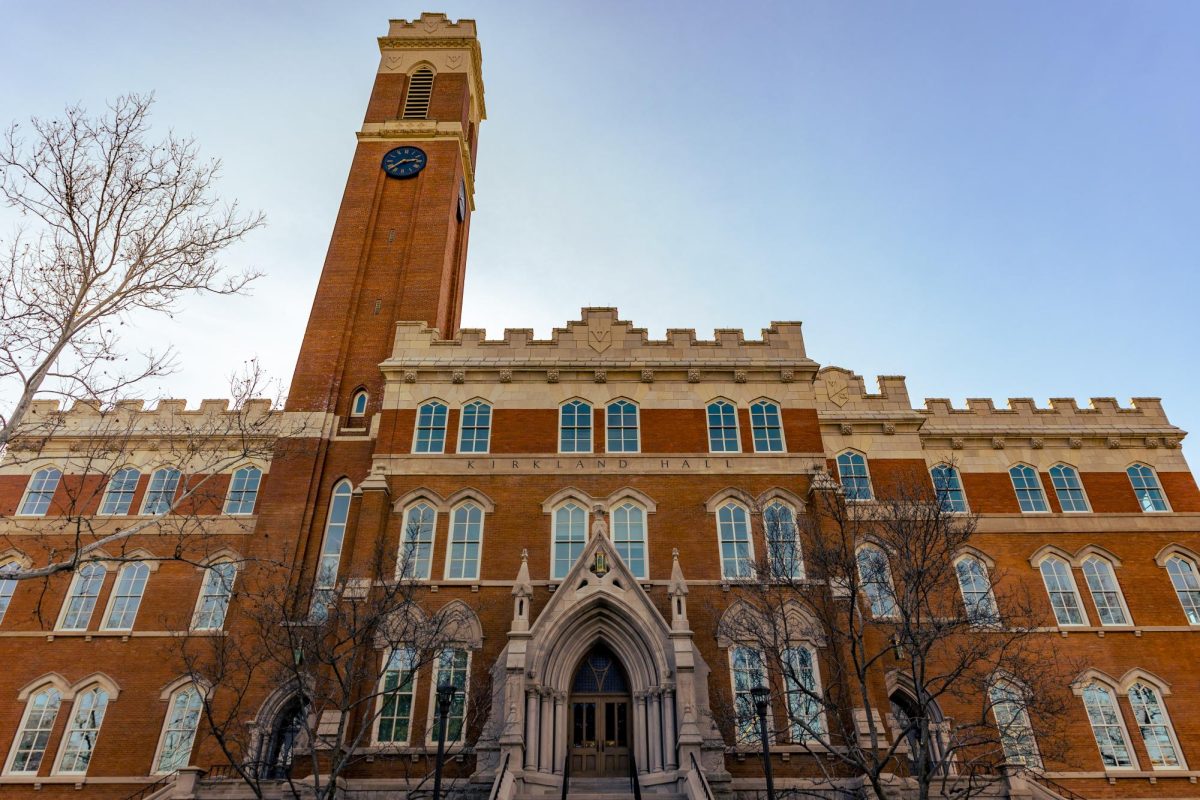



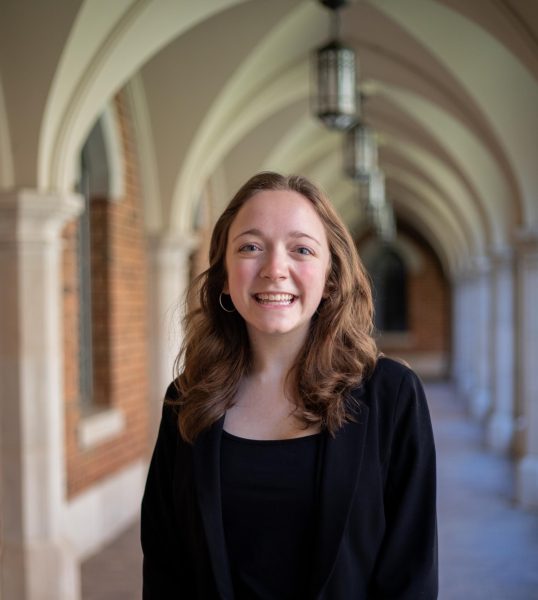
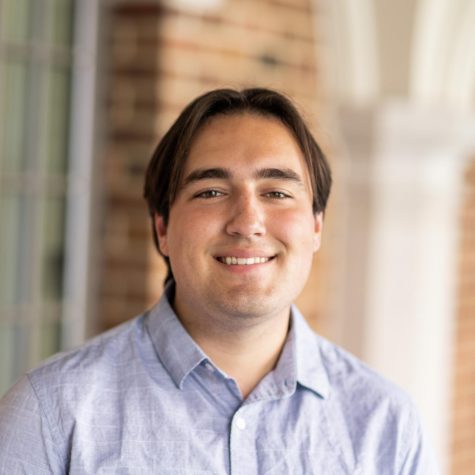
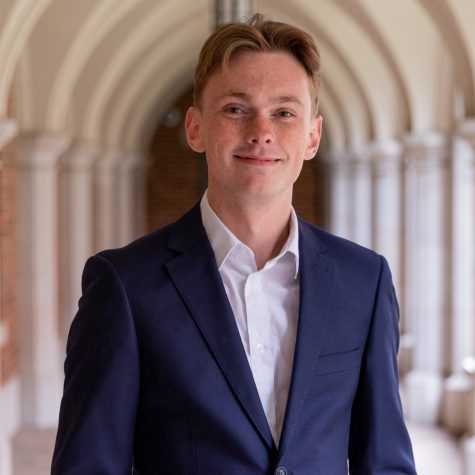
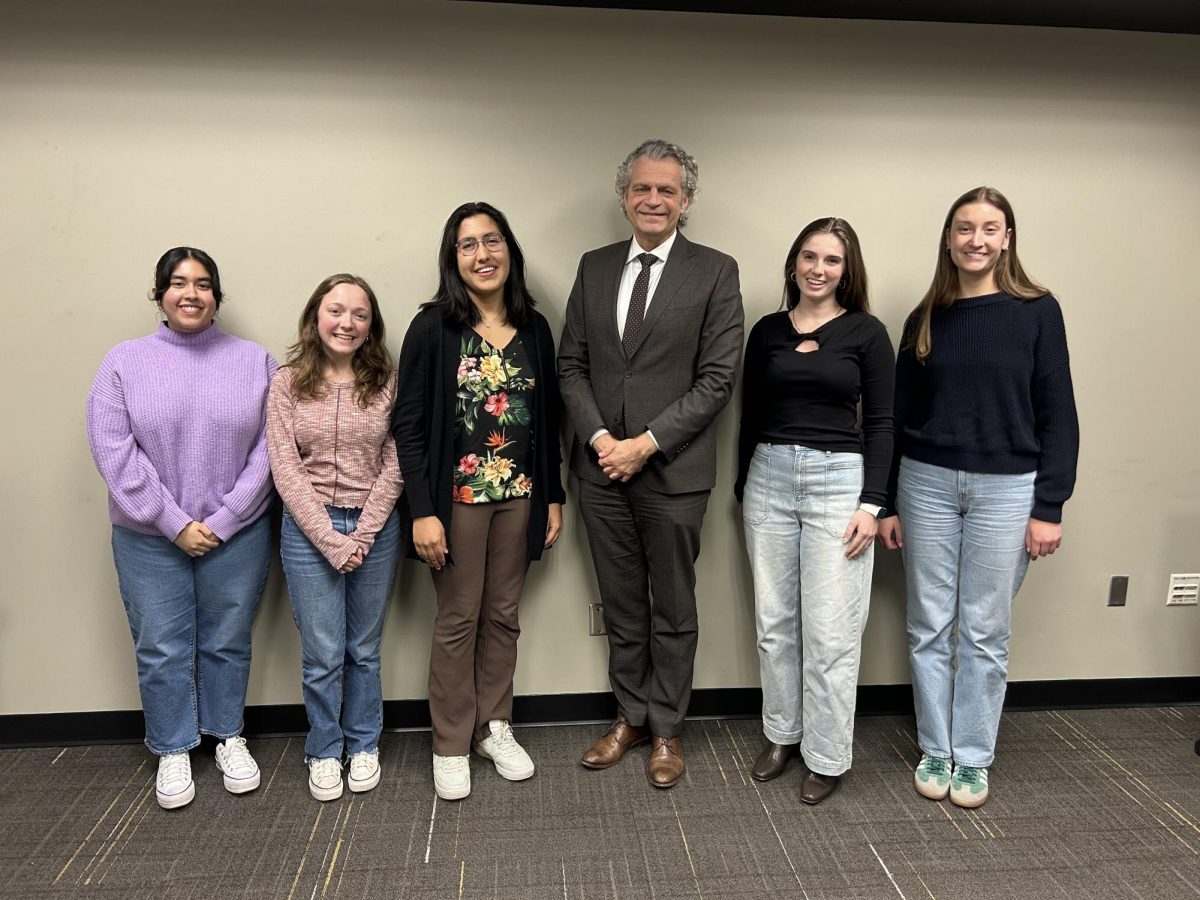

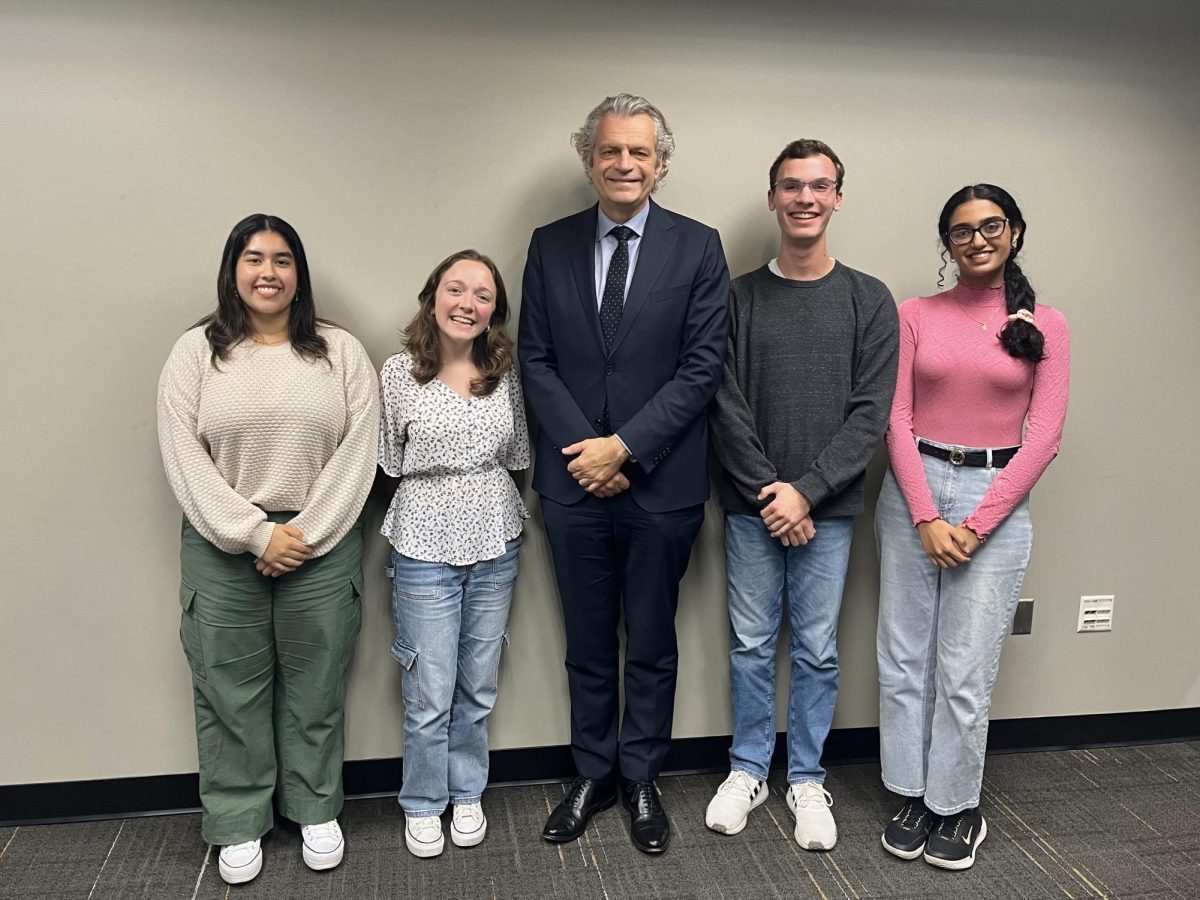
Cranky Alum • Mar 23, 2024 at 5:24 pm CDT
Follow the money with GEODIS! Vandy is scratching the back of the Ingrams.